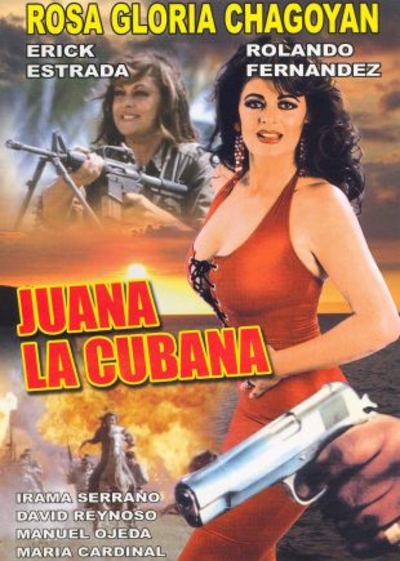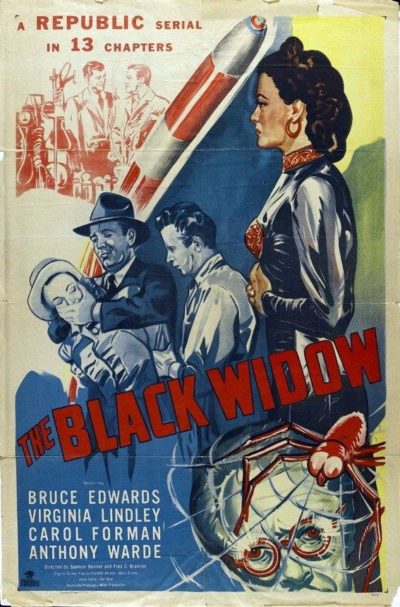 ★★★
★★★
“Time changes everything… or does it?”
DISCLAIMER: I have no knowledge on the backstory of this series. Grisaia Phantom Trigger – The Animation is the latest story in the Grisaia universe, that originally began as a series of “visual novels” (which as I understand, have more in common with a computer game), was then turned into a manga and the 13-episode anime series The Fruits of Grisaia which got two sequels, The Labyrinth of Grisaia (a TV movie) and The Eden of Grisaia (10 episodes), before we reached where we are here. GPT-TA is the new stand-alone film of that series, which came out last year and was also shown in cinemas. As none of the above mentioned series or films have been dubbed and released in Germany, my home country, I never saw anything before this movie. I belong to those anime fans who prefer to see their stuff in a language they can understand.
But that actually doesn’t matter at all, for this film serves as a very good introduction to the uninformed like myself. It therefore can be watched by those who have never seen an episode of this series before. As a matter of fact, the film consists of two longer episodes, combined into a movie, that thus tells us two separate stories. The first part serves as an introduction, which I felt was a bit dialogue-heavy. The second half was around 15 minutes longer than the first and provided more of the action stuff that fans love. But the way it was done was very nice.
 So, what’s it all about? There was a US-Japanese anti-terrorism organisation called CIRS: after having become public knowledge, a new agency for covert operations was created, called SORD (Social Ops, Research and Development). This organisation has established many schools within the country, where homeless poor orphans from unfortunate backgrounds are being trained and schooled to protect the country (meaning: to kill people).
So, what’s it all about? There was a US-Japanese anti-terrorism organisation called CIRS: after having become public knowledge, a new agency for covert operations was created, called SORD (Social Ops, Research and Development). This organisation has established many schools within the country, where homeless poor orphans from unfortunate backgrounds are being trained and schooled to protect the country (meaning: to kill people).
In this particular school, where the orphans consist solely of young girls, the teenagers are taken care of by a young man Haruto, who with his long hair almost looks like a woman himself. He could have his own interesting backstory – he doesn’t shoot, but has others do it for him – something I suspect happened in one of the prequel shows. Than there’s sharp-shooter Touka; the Russian Ninja Murasaki; hot-shot action-girl Rena, who’s totally devoted to her ‘Master’ Haruto; Chris, the “mother” of the team, a handsome woman; and the female (and underdressed!) director. There are a couple more characters, but they hardly have much more than a cameo.
The teen girls are nice, and love to banter and bicker with each other in the way normal pupils would in school. But when they are on a mission they make, as we say in Germany, “nails with heads” – meaning they definitely don’t take prisoners. Seeing these otherwise lovely girls, delivering head-shots here and there quite bewildering to me, It was also a bit much for the new teacher, Miss Arisaka, who is kidnapped in the first episode, though still decided she would continue her new job at this unusual school.
The second part then gets into the real action. It’s a more complex story about a comatose former agent who gets kidnapped from a ship. When the girls find him, he’s dead, his heart having been ripped out. The team finds out that the heart, that was originally supposed to go to a leader of the secret service, has been stolen by Russians who have been duped by the seller, who sold the same heart twice. After they recover the heart, they get tricked immediately again by a false courier. As young hot-shot Rena pursues the courier, and then the woman the heart has been given to, she finds out much to her surprise that the woman is her childhood friend Maki, with whom she spent time on the streets, trying to survive.
It’s that second act that makes me like this movie especially. Sure, the idea of hero and villain having a history together, is nowadays an old, almost beaten-to-death cliche. But unlike a recent Bond movie, where the connection is only unimaginatively drawn, and never given any emotional meaning, this small anime film does so much more (and better) with the idea. In that childhood, they called themselves “Sics” and “Bucks” – Rena found Maki behind a coffee shop – and lived on the streets, fighting for food, which they shared. A gangster decided that Rena should become a killer and Maki a prostitute, but as things went on also Maki became a killer, the right-hand woman for heartsick Russian mob boss, Alexej Nicolaijewich. She is as devoted to her master as Rena is to hers, leading to a very intense fight, first with guns then with bare hands.
 Though just 88 minutes long, this is very well done. The few short scenes of the childrens’ childhood give their fight more meaning then the talked about (but never really felt) conflict between for example 007 and 006 in GoldenEye. The fight itself is well-choreographed, looks believable (I’m very well aware I’m talking about an anime!), has exactly the right length and comes across as deliciously hard. And while the whole story about the stolen heart is solved in the end, I liked that this movie doesn’t end the way one would expect. The otherwise trigger-happy Rena doesn’t kill Maki, and also learns about her responsibility to follow orders from Haruto. So there’s a learning curve here.
Though just 88 minutes long, this is very well done. The few short scenes of the childrens’ childhood give their fight more meaning then the talked about (but never really felt) conflict between for example 007 and 006 in GoldenEye. The fight itself is well-choreographed, looks believable (I’m very well aware I’m talking about an anime!), has exactly the right length and comes across as deliciously hard. And while the whole story about the stolen heart is solved in the end, I liked that this movie doesn’t end the way one would expect. The otherwise trigger-happy Rena doesn’t kill Maki, and also learns about her responsibility to follow orders from Haruto. So there’s a learning curve here.
As Nicolaiewich has died peacefully, Maki has no interest in following the Russian gangsters: her obligation was to Nicolaiewich not the organisation. Following Rena’s request, Haruto is taking her under his wing to become a new member of the team. I liked this ending as something different to what a Hollywood actioner would typically serve us. Also, twisting cliches is something I find very rewarding storywise. It’s quite astonishing that big blockbusters in Hollywood can’t be written and directed with the same care as much smaller budgeted Japanese anime. The storytelling in Hollywood’s entertainment industry has really declined sharply, in my opinion. This movie shows you don’t need a big budget to add some more personal touches to your main characters.
The animation itself is well done – good but probably not great, as there are a couple of static images, probably to save money. Also remarkable: this anime was able to tell its story without the typical ecchi or anime humour, so no panty- or booby-shots. The main focus is on the drama and interaction of the different characters, though I couldn’t complain about the action. It was a good mix of both elements. Also, I can say the German dubbing was very well-done. The German voice actresses sound much more grown-up than those in the Japanese dub (I listened for a minute into it) where the girls sounded all very kawai, very cute… The dialogue itself sounded very believable in the German version, especially the bantering and the saucy/funny comments of the girls.
The only minor complaint in my book is that I felt this is a great beginning for a series I would like to continue. Unfortunately, it is (at least for the time being) the end point of the story as far as any German releases are concerned. Well, who knows… maybe the DVD label will now also release the sequel Grisaia Phantom Trigger – The Animation: Stargazer and the sequel series Grisaia: Phantom Trigger that was announced recently?
Dir: Motoki Tanaka
 A long time ago – 17 years or thereabouts! – we reviewed another Chagoyan/Fernandez production, La Guerrero Vengadora 2. It has taken me that long to find another of her films in a format I can understand without having to rope Chris into translating for me (I’d rather save the martyr points required for something more worthwhile). This follows Guerrero by three years, yet is more than slightly similar. In both, the heroine has a secret identity; and both also end with a helicopter going up against a rocket-launcher. Ok, technically it’s a bazooka here. Close enough for anti-government work. For that’s Chagoyan’s main pastime here, after her father was betrayed and executed by the unpleasant Colonel Pereza (Estrada).
A long time ago – 17 years or thereabouts! – we reviewed another Chagoyan/Fernandez production, La Guerrero Vengadora 2. It has taken me that long to find another of her films in a format I can understand without having to rope Chris into translating for me (I’d rather save the martyr points required for something more worthwhile). This follows Guerrero by three years, yet is more than slightly similar. In both, the heroine has a secret identity; and both also end with a helicopter going up against a rocket-launcher. Ok, technically it’s a bazooka here. Close enough for anti-government work. For that’s Chagoyan’s main pastime here, after her father was betrayed and executed by the unpleasant Colonel Pereza (Estrada).





 Janina Duszejko (Mandat) is a former engineer, who now lives in a small rural Polish town. She has a deep love of nature and animals. This is a belief not shared by many of the local population, who treat animals as a resource, put there for their benefit – an attitude which brings them into conflict with Duszejko. After her two dogs disappear, she goes to the authorities, but they blow her off. However, the man she suspects most, turns up dead – just the first in a series of mysterious deaths, that may be related to Jaroslav Wnetzak, a local businessman with a finger in a number of shady pies. Subsequent corpses include the police chief, who owes Wnetzak money.
Janina Duszejko (Mandat) is a former engineer, who now lives in a small rural Polish town. She has a deep love of nature and animals. This is a belief not shared by many of the local population, who treat animals as a resource, put there for their benefit – an attitude which brings them into conflict with Duszejko. After her two dogs disappear, she goes to the authorities, but they blow her off. However, the man she suspects most, turns up dead – just the first in a series of mysterious deaths, that may be related to Jaroslav Wnetzak, a local businessman with a finger in a number of shady pies. Subsequent corpses include the police chief, who owes Wnetzak money. To my surprise, when I begin researching this film, it appears actually to be based – at least, somewhat – in reality. I give you
To my surprise, when I begin researching this film, it appears actually to be based – at least, somewhat – in reality. I give you  Despite the above, there are some strong positives to be found here. First off, the Serbian mountain landscapes are beautiful, and the cinematography does them justice. Free climbing, the focus here, is an innately tense pastime, with the risk of serious injury or death present at any second. Again, the photography gets this over well, with some of the shots capturing the heights involved, to the point of almost inducing vertigo in the viewer. Finally, Ashworth is entirely convincing in her portrayal of free climber Kelly. She has the right, well-defined physique, muscled particularly around the shoulders, and exudes a quiet confidence in her own abilities, which is what you would expect. That’s the good news.
Despite the above, there are some strong positives to be found here. First off, the Serbian mountain landscapes are beautiful, and the cinematography does them justice. Free climbing, the focus here, is an innately tense pastime, with the risk of serious injury or death present at any second. Again, the photography gets this over well, with some of the shots capturing the heights involved, to the point of almost inducing vertigo in the viewer. Finally, Ashworth is entirely convincing in her portrayal of free climber Kelly. She has the right, well-defined physique, muscled particularly around the shoulders, and exudes a quiet confidence in her own abilities, which is what you would expect. That’s the good news.  Two minutes in, Chris turned to me and said, “Is this an Asylum movie?” Oh, that she had been right, for the net results might have been more entertaining. This is truly the dumbest film I have seen in a very long time. It feels like a throwback in content to about thirty years ago, except with a script that makes your average Cannon product look like Citizen Kane. It’s set on a missile interceptor station in the middle of the Pacific, to which Captain J. J. Collins (Pataky) has just been assigned again. Barely has she dropped her bags off in her cabin, when word comes that their sister base in Alaska has gone dark, and terrorists have stolen 16 Russian ICBMs. Before you can say “shitty Die Hard knockoff”, trust-fund kid Alexander Kessel (Bracey) shows up, intent on removing America’s last line of defense. It’s up to J.J. and plucky SigInt guy Rahul Shah (Mehta) to prevent them – or the terrorists will have won, literally.
Two minutes in, Chris turned to me and said, “Is this an Asylum movie?” Oh, that she had been right, for the net results might have been more entertaining. This is truly the dumbest film I have seen in a very long time. It feels like a throwback in content to about thirty years ago, except with a script that makes your average Cannon product look like Citizen Kane. It’s set on a missile interceptor station in the middle of the Pacific, to which Captain J. J. Collins (Pataky) has just been assigned again. Barely has she dropped her bags off in her cabin, when word comes that their sister base in Alaska has gone dark, and terrorists have stolen 16 Russian ICBMs. Before you can say “shitty Die Hard knockoff”, trust-fund kid Alexander Kessel (Bracey) shows up, intent on removing America’s last line of defense. It’s up to J.J. and plucky SigInt guy Rahul Shah (Mehta) to prevent them – or the terrorists will have won, literally.  This was the second-to-last of Republic’s sixty-six serials and, to be honest, it shows. Having watched
This was the second-to-last of Republic’s sixty-six serials and, to be honest, it shows. Having watched  This is set around fifty years after “the Provocation”, a series of unsolved mass abductions which led to Capernica becoming a strictly-controlled hierarchical society of Uppers, Lowers and the Military. Orphan Jaclyn Holloway is a Lower, living in near poverty in the seaside town known as Settlement 56. The only way out for a Lower is to pass the stringent test which allows entry into the Military. On graduating from the local school,
This is set around fifty years after “the Provocation”, a series of unsolved mass abductions which led to Capernica becoming a strictly-controlled hierarchical society of Uppers, Lowers and the Military. Orphan Jaclyn Holloway is a Lower, living in near poverty in the seaside town known as Settlement 56. The only way out for a Lower is to pass the stringent test which allows entry into the Military. On graduating from the local school,  ★★★
★★★ So, what’s it all about? There was a US-Japanese anti-terrorism organisation called CIRS: after having become public knowledge, a new agency for covert operations was created, called SORD (Social Ops, Research and Development). This organisation has established many schools within the country, where homeless poor orphans from unfortunate backgrounds are being trained and schooled to protect the country (meaning: to kill people).
So, what’s it all about? There was a US-Japanese anti-terrorism organisation called CIRS: after having become public knowledge, a new agency for covert operations was created, called SORD (Social Ops, Research and Development). This organisation has established many schools within the country, where homeless poor orphans from unfortunate backgrounds are being trained and schooled to protect the country (meaning: to kill people). Though just 88 minutes long, this is very well done. The few short scenes of the childrens’ childhood give their fight more meaning then the talked about (but never really felt) conflict between for example 007 and 006 in GoldenEye. The fight itself is well-choreographed, looks believable (I’m very well aware I’m talking about an anime!), has exactly the right length and comes across as deliciously hard. And while the whole story about the stolen heart is solved in the end, I liked that this movie doesn’t end the way one would expect. The otherwise trigger-happy Rena
Though just 88 minutes long, this is very well done. The few short scenes of the childrens’ childhood give their fight more meaning then the talked about (but never really felt) conflict between for example 007 and 006 in GoldenEye. The fight itself is well-choreographed, looks believable (I’m very well aware I’m talking about an anime!), has exactly the right length and comes across as deliciously hard. And while the whole story about the stolen heart is solved in the end, I liked that this movie doesn’t end the way one would expect. The otherwise trigger-happy Rena  This is something of a fringe entry, and illustrates a few of the issues with Hollywood of the time. In particular, a severe reluctance to let female characters act with genuine independence. We see this on both side of the story here. The title character is Sombra (Forman), a vaguely Asiatic woman who is engaged in a plot to steal nuclear secrets from the United States. To this end, she has been trying to bribe acquaintances of a notable scientist, but the trail of spider-envenomed corpses resulting from their refusal to help has brought her to the attention of the Daily Clarion and its ace girl reporter, Joyce Winters (Lindley). Which would be fine, if the women were allowed to go head-to-head on their own terms, in the same way as
This is something of a fringe entry, and illustrates a few of the issues with Hollywood of the time. In particular, a severe reluctance to let female characters act with genuine independence. We see this on both side of the story here. The title character is Sombra (Forman), a vaguely Asiatic woman who is engaged in a plot to steal nuclear secrets from the United States. To this end, she has been trying to bribe acquaintances of a notable scientist, but the trail of spider-envenomed corpses resulting from their refusal to help has brought her to the attention of the Daily Clarion and its ace girl reporter, Joyce Winters (Lindley). Which would be fine, if the women were allowed to go head-to-head on their own terms, in the same way as